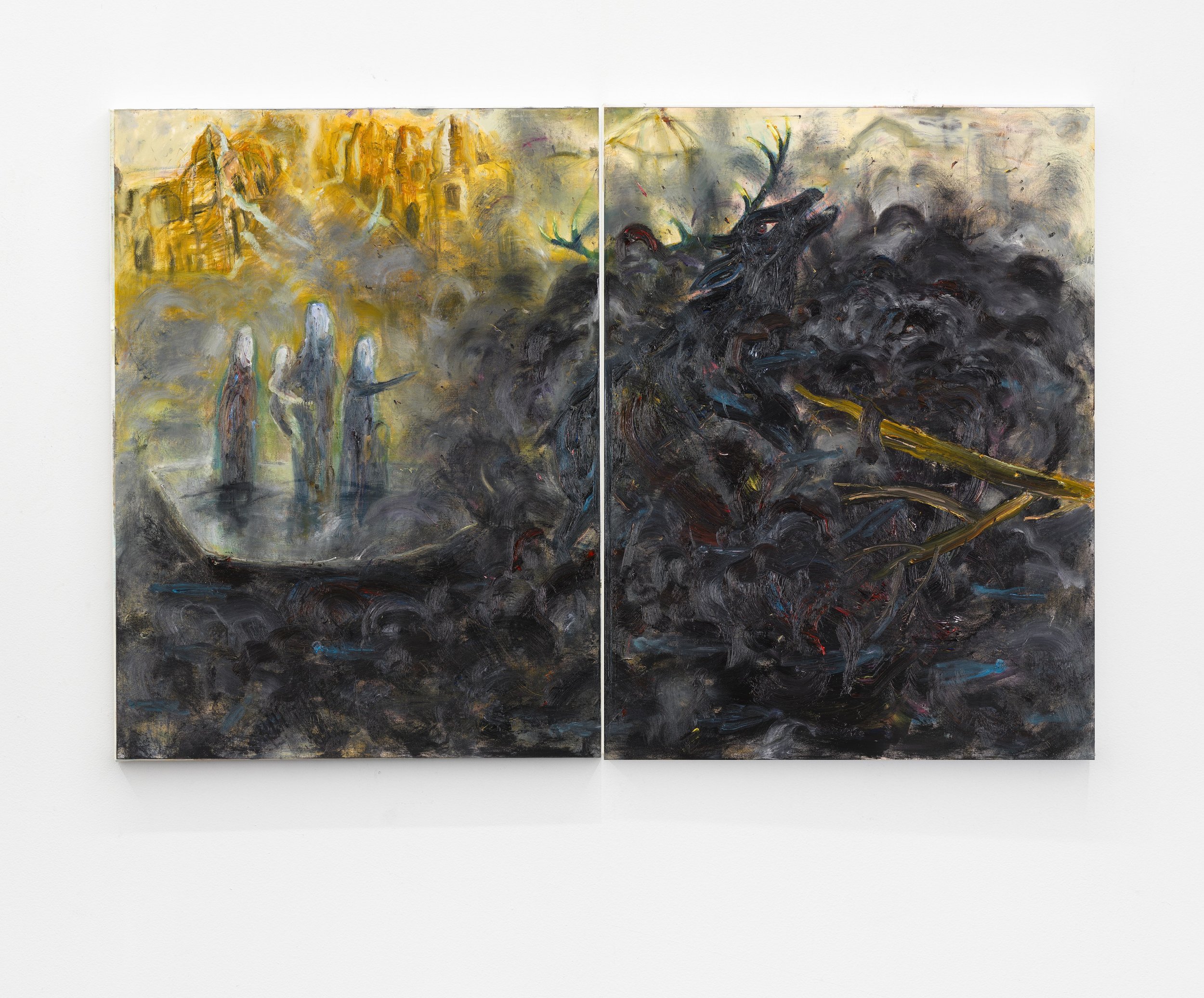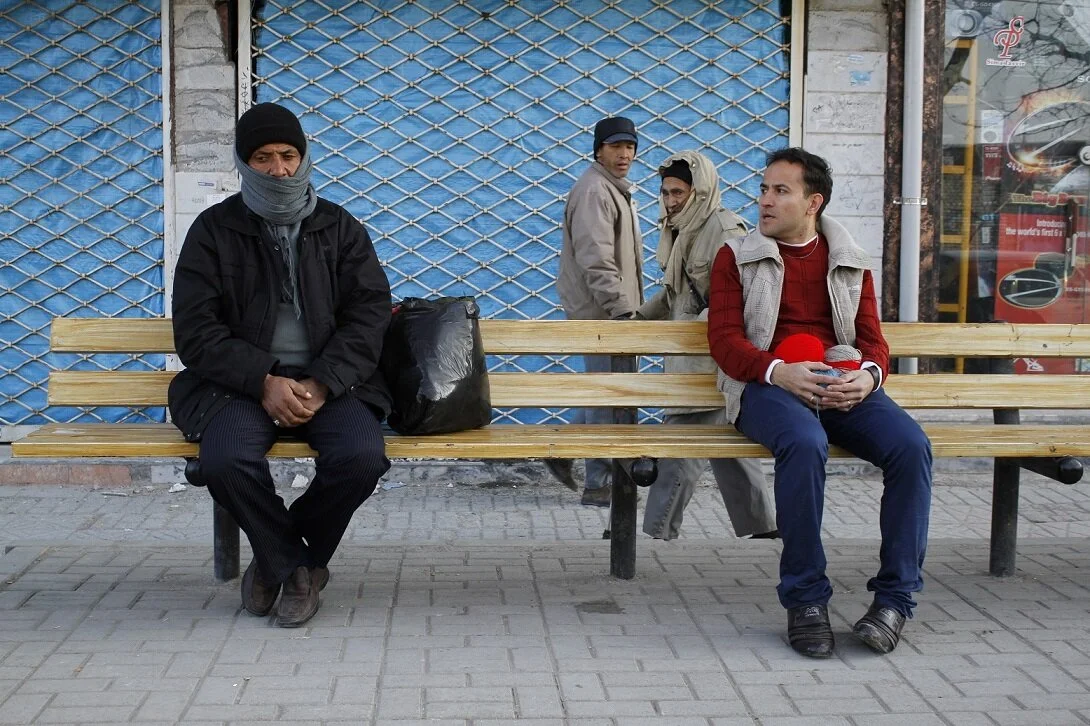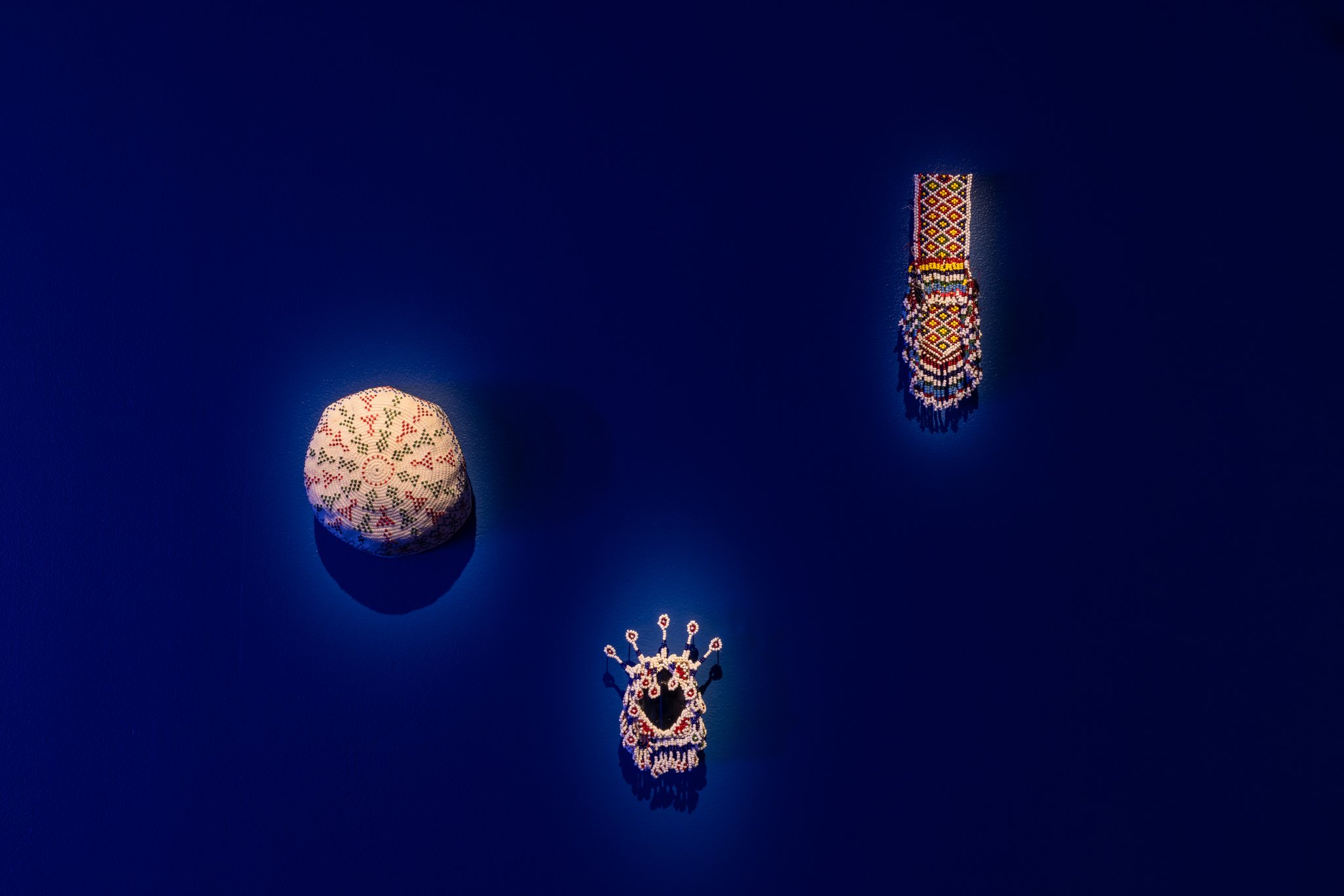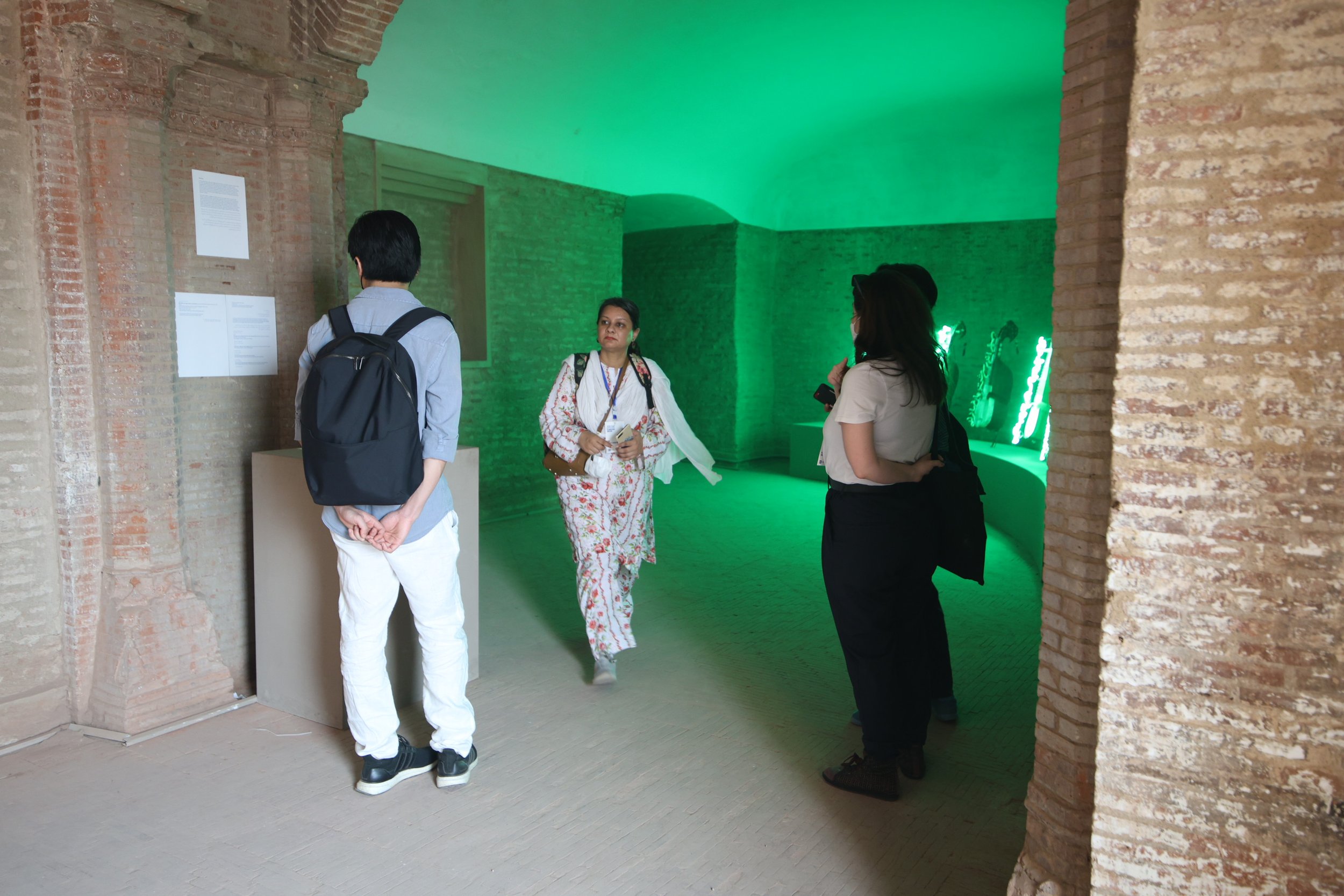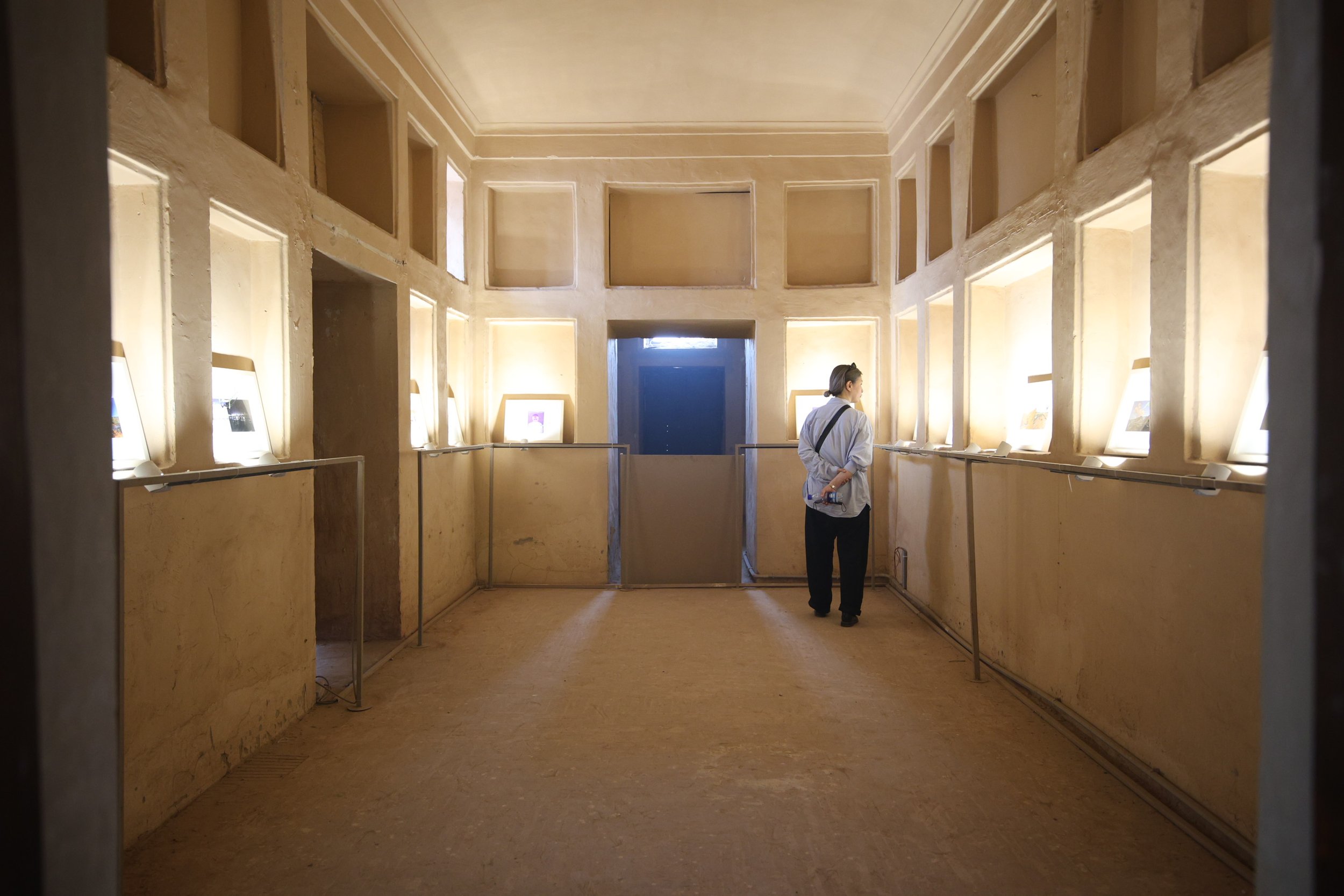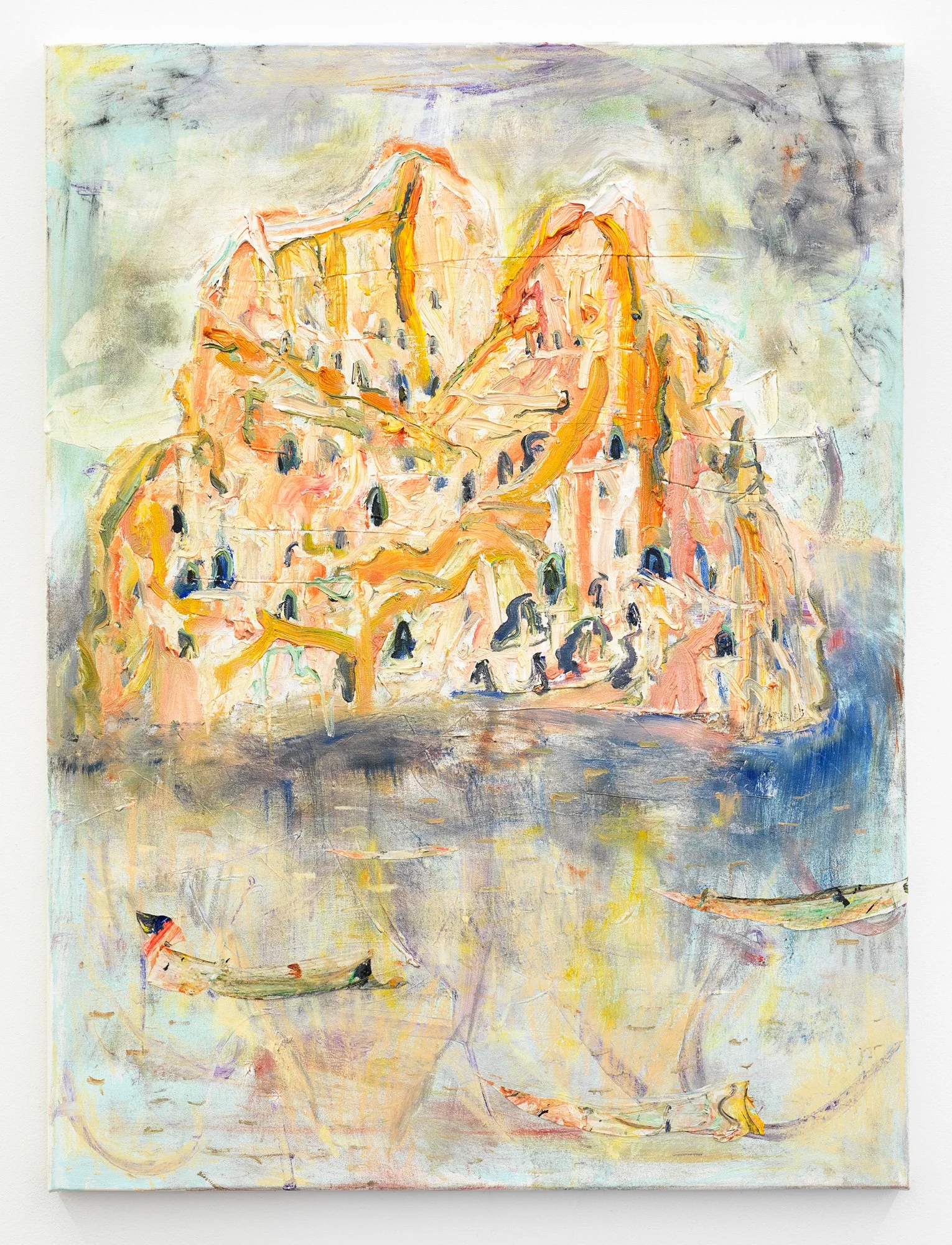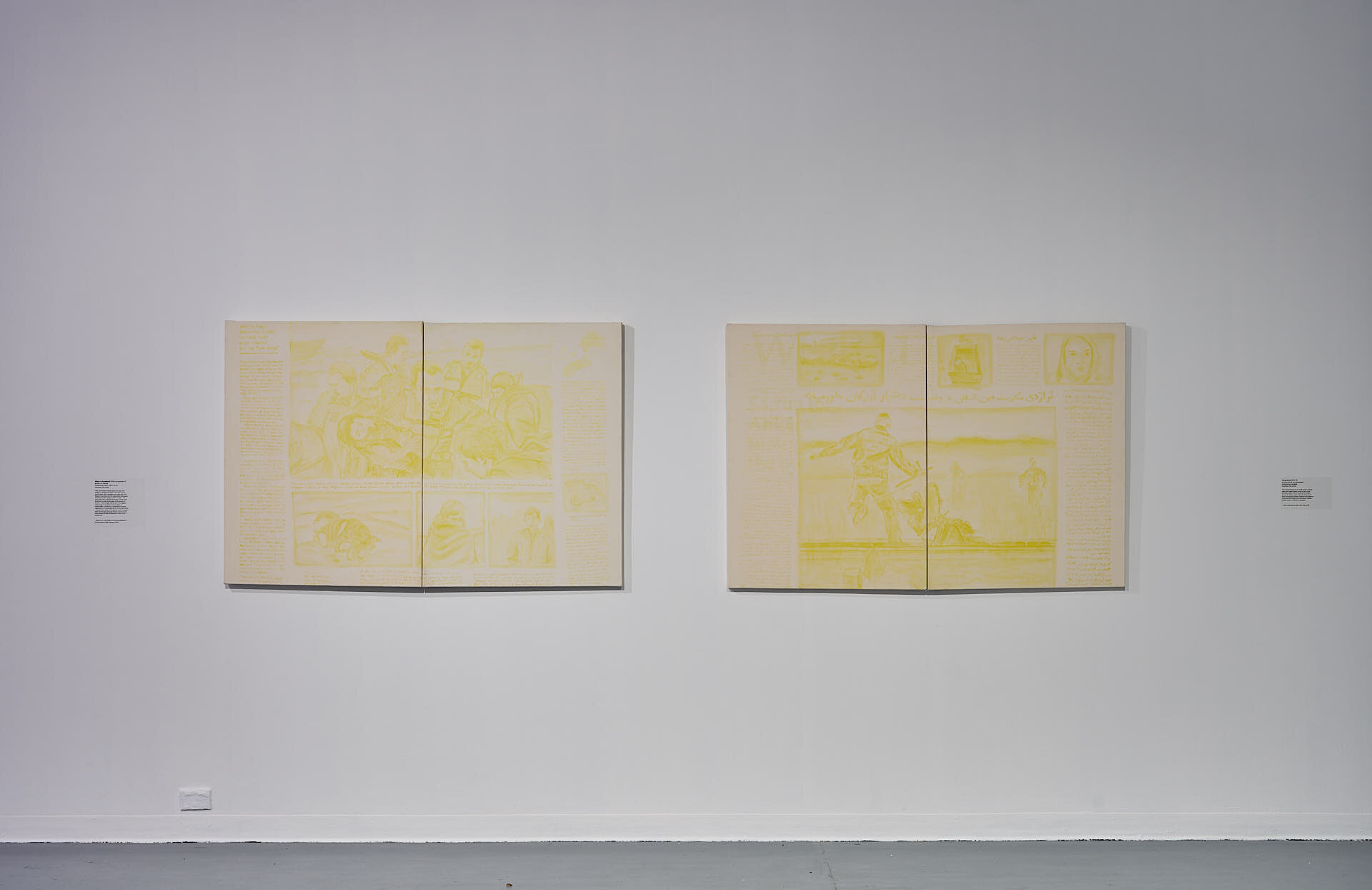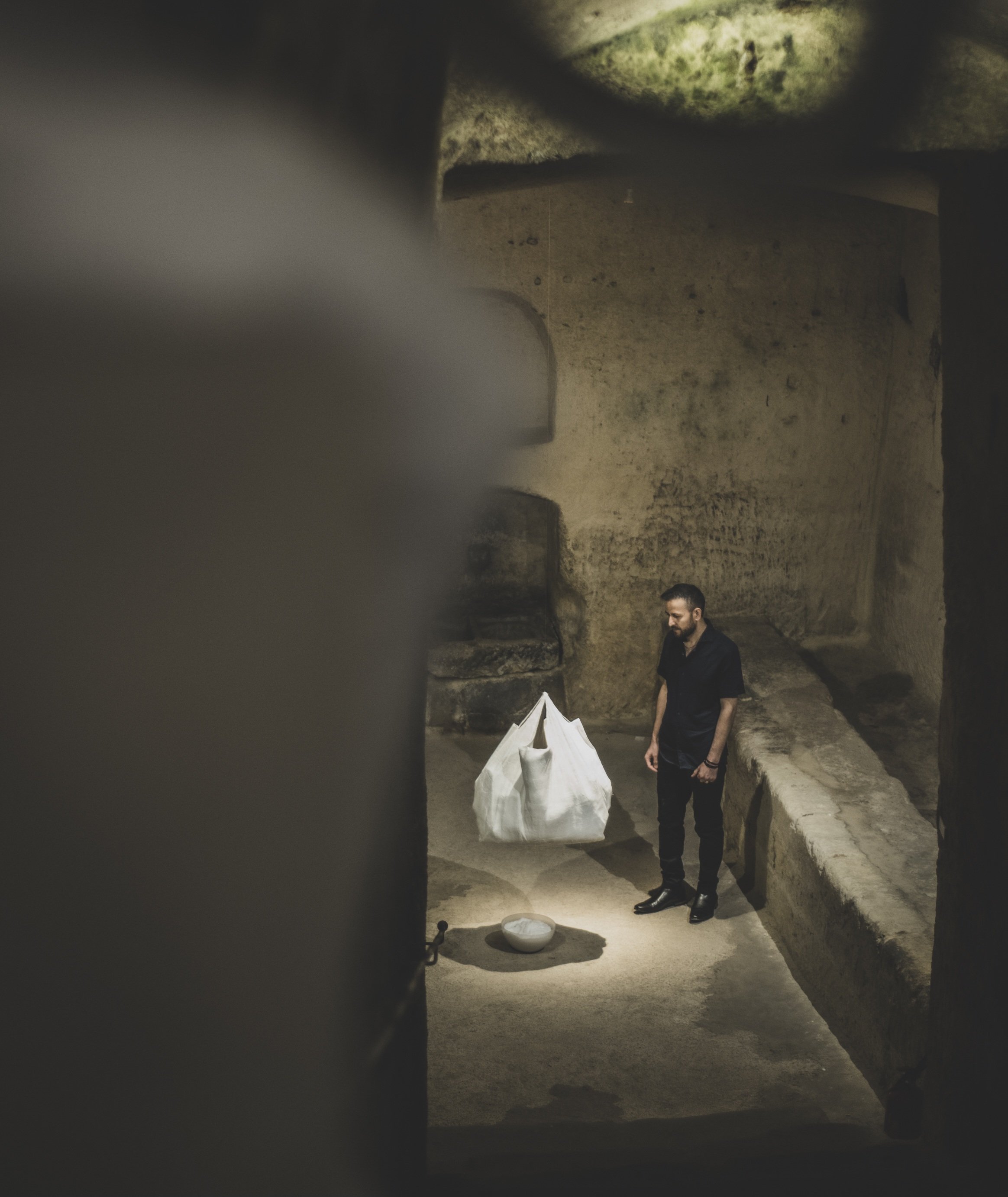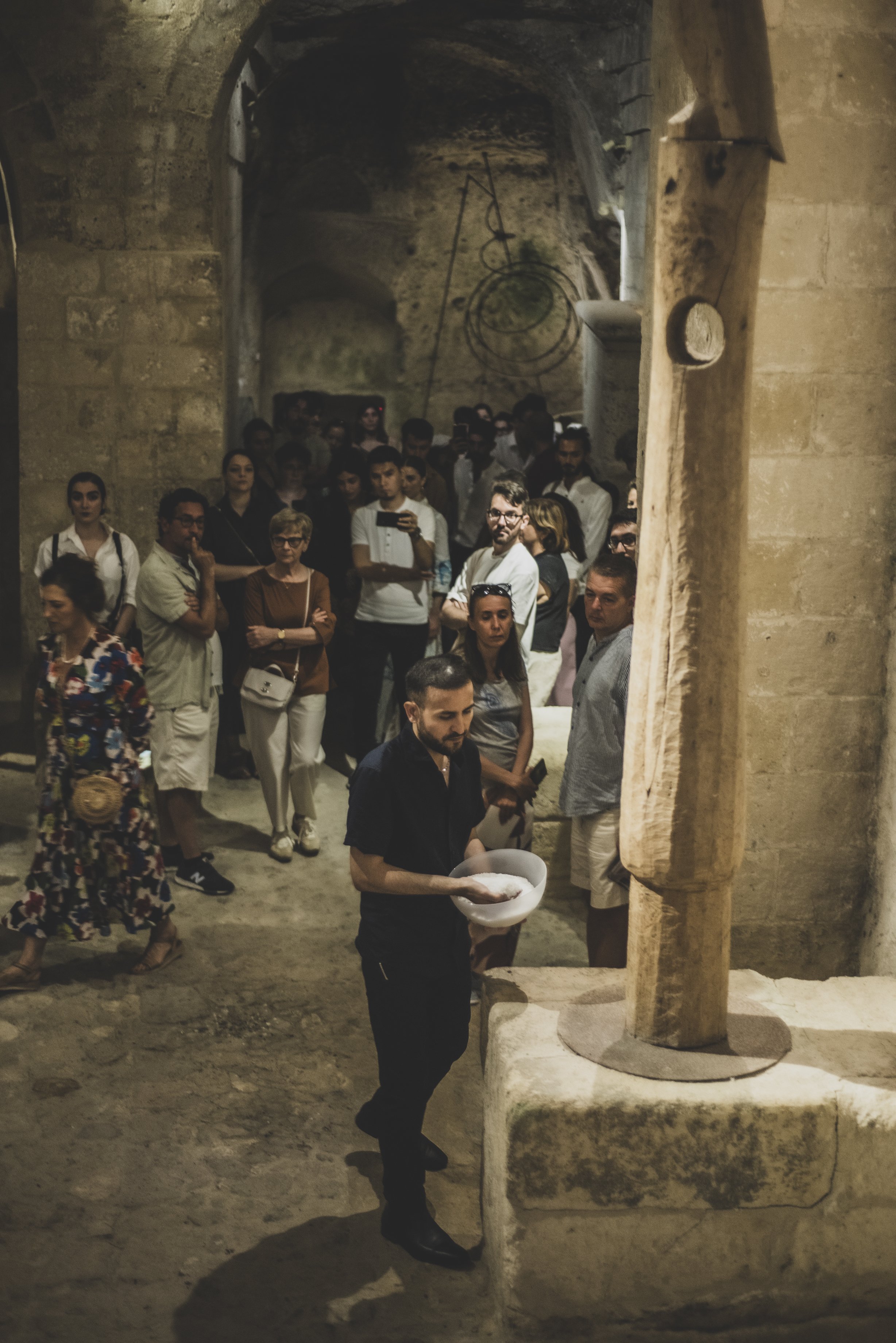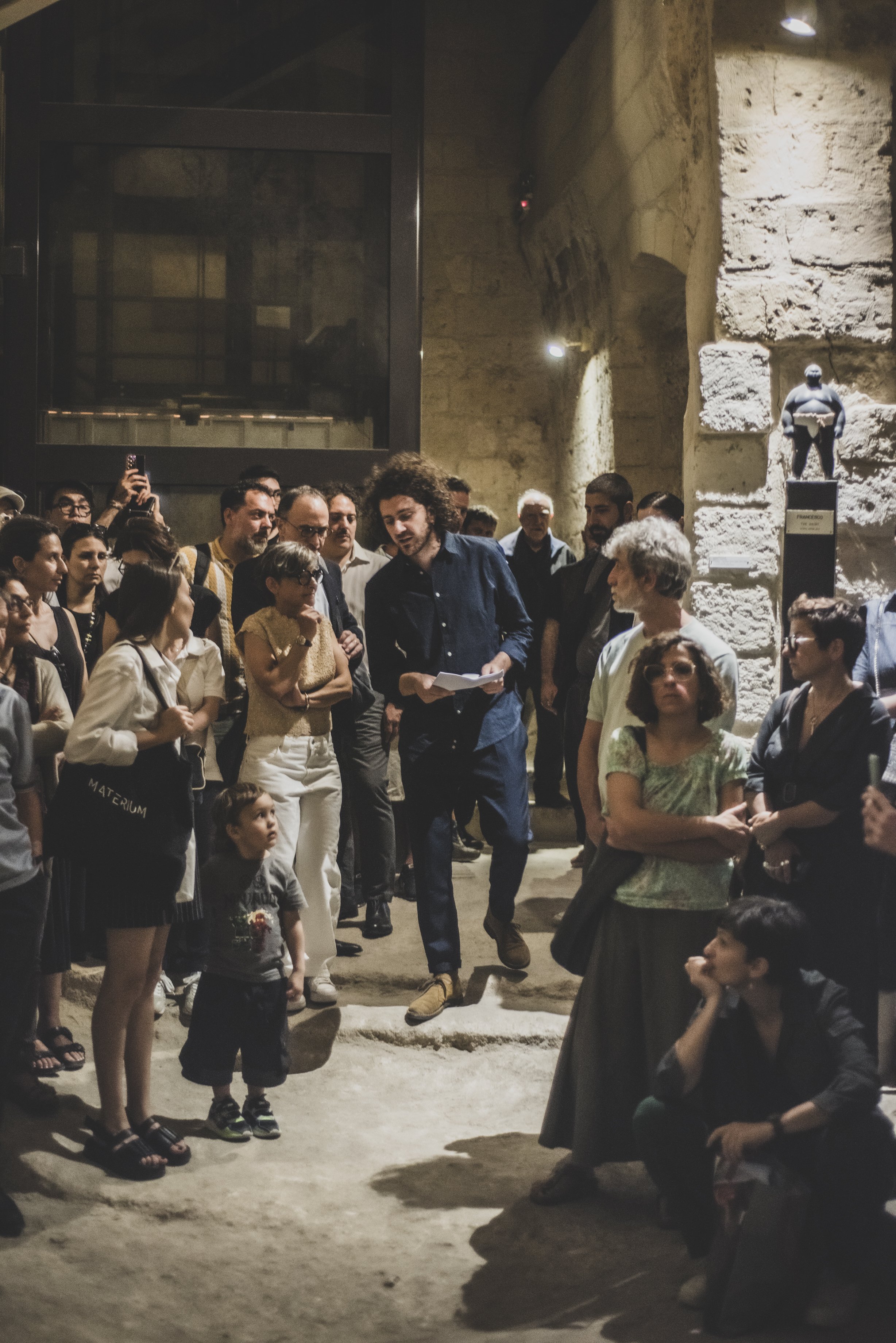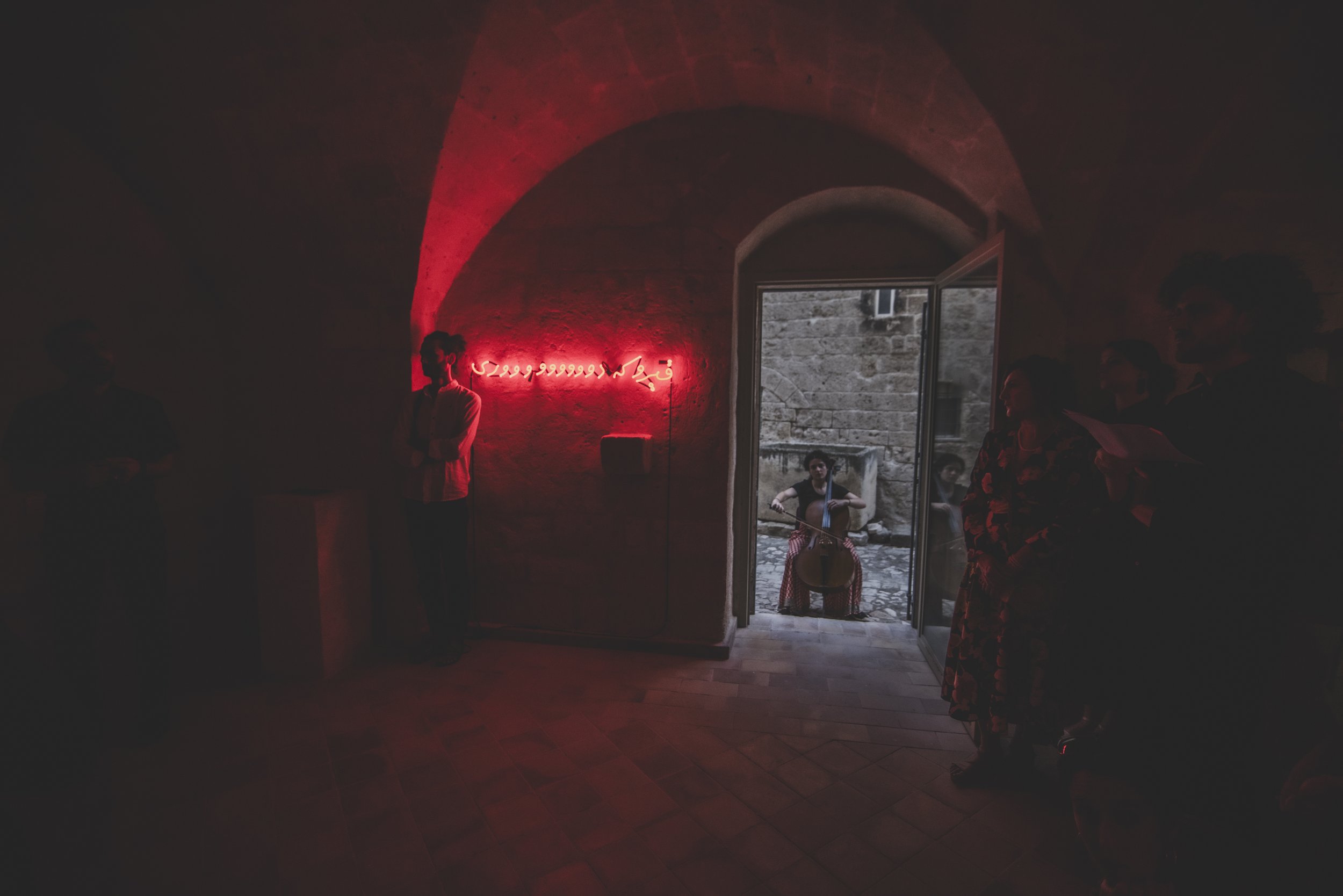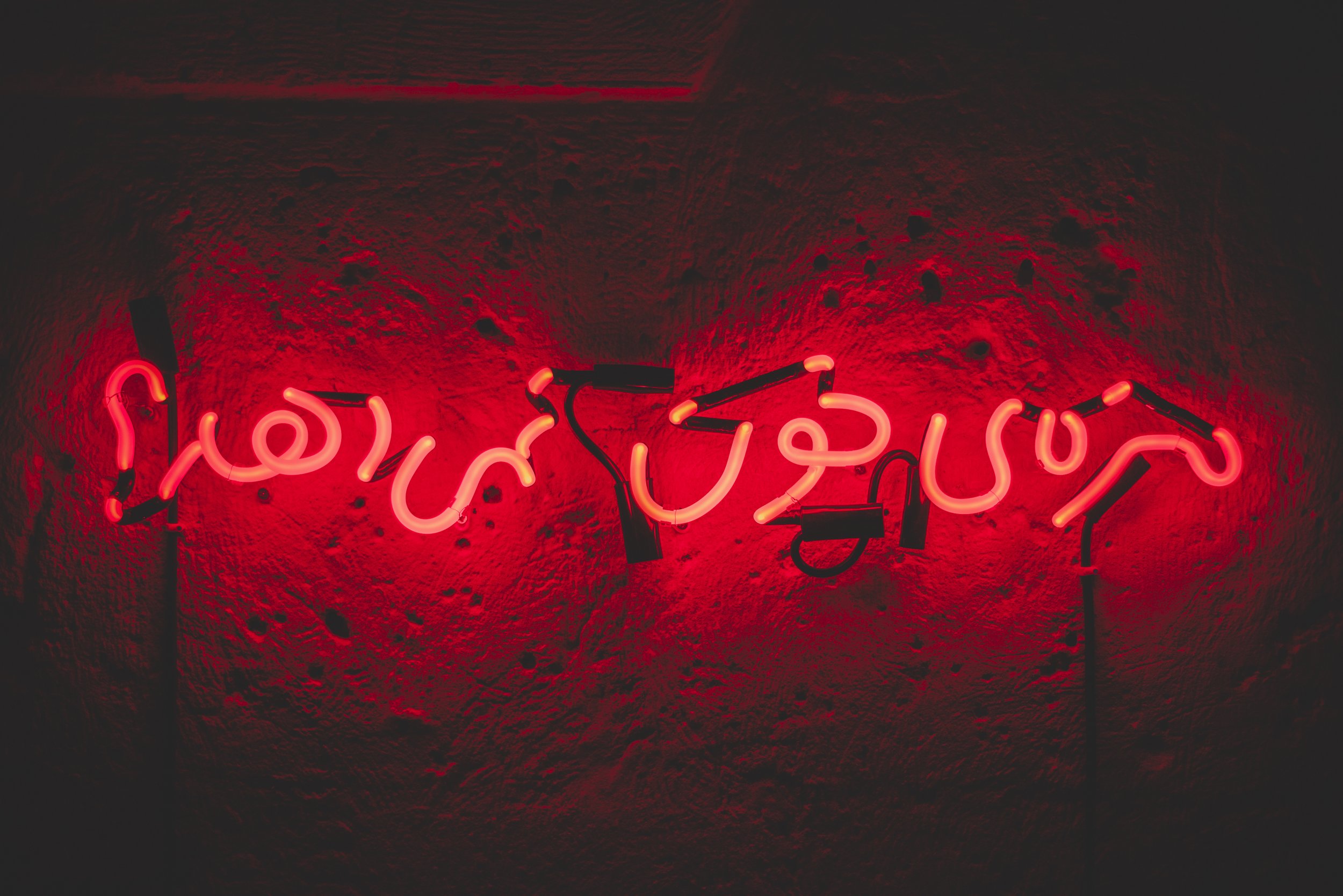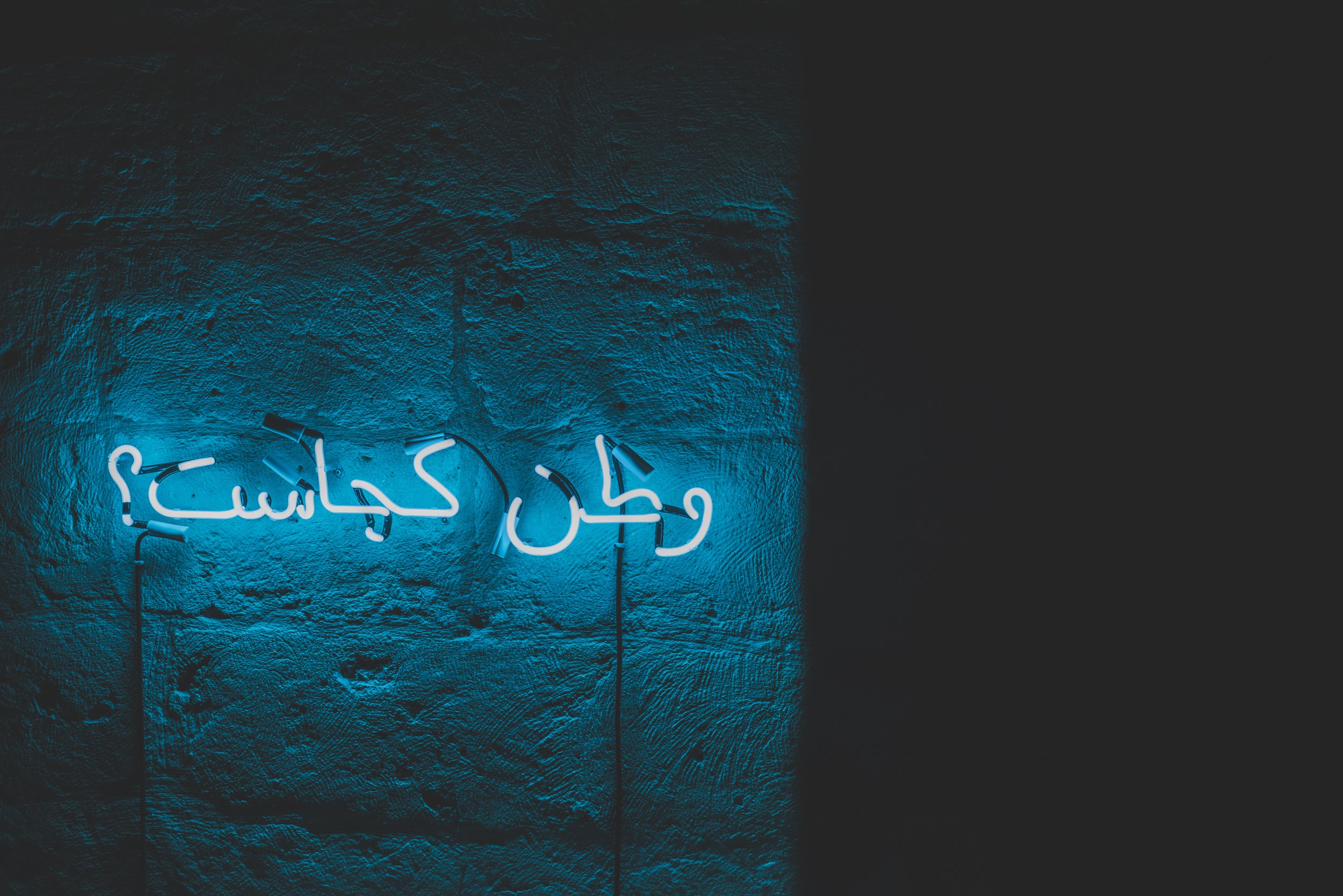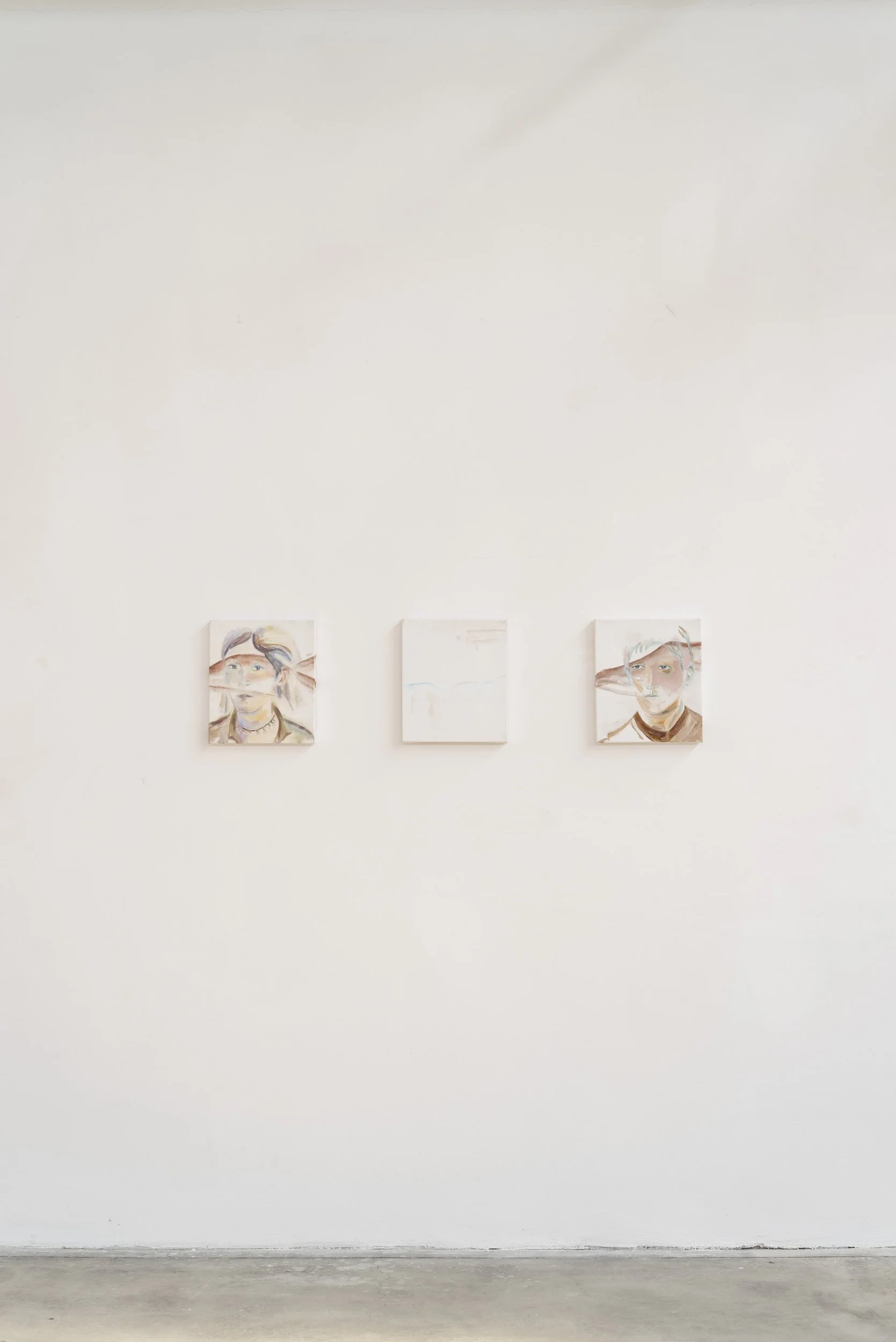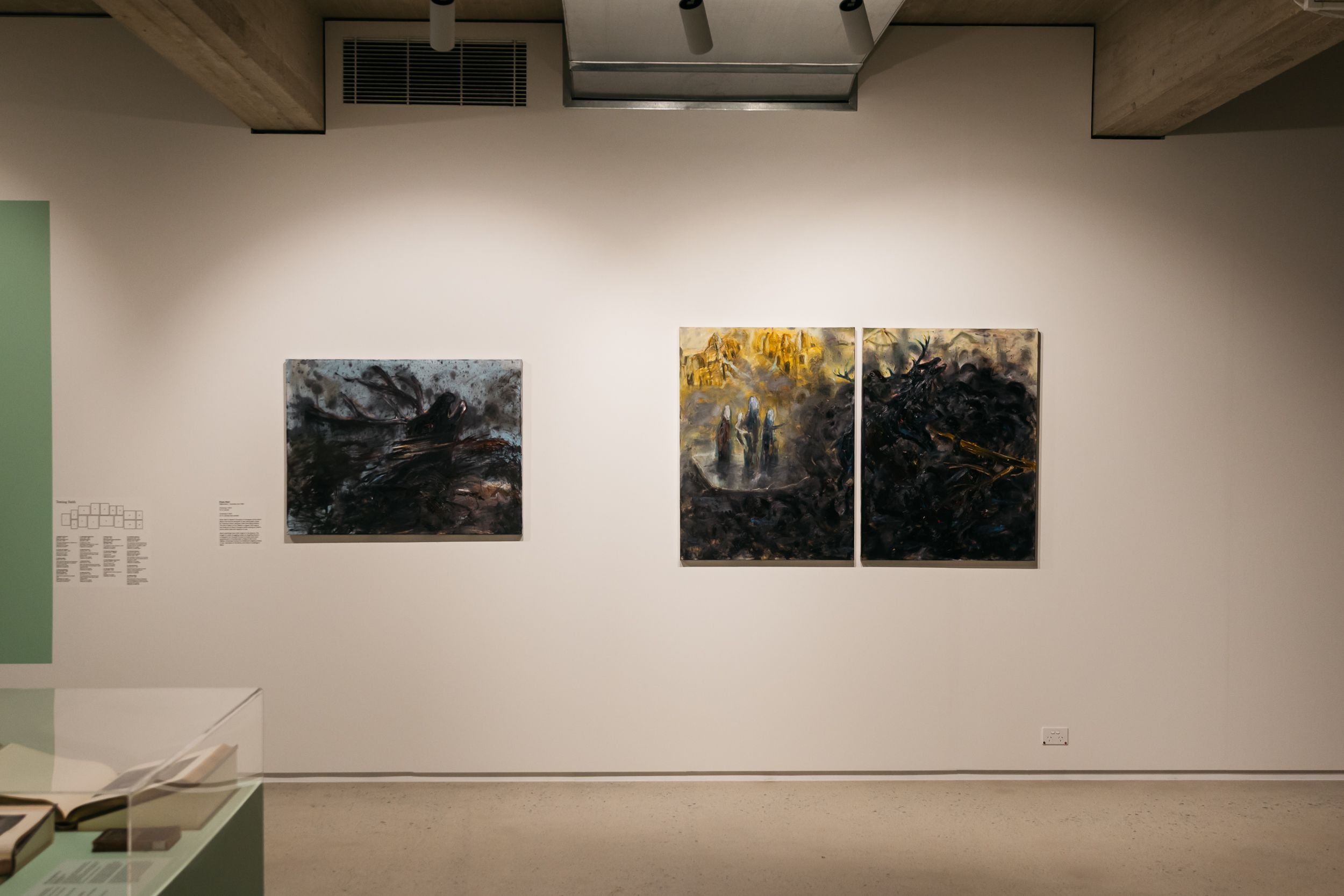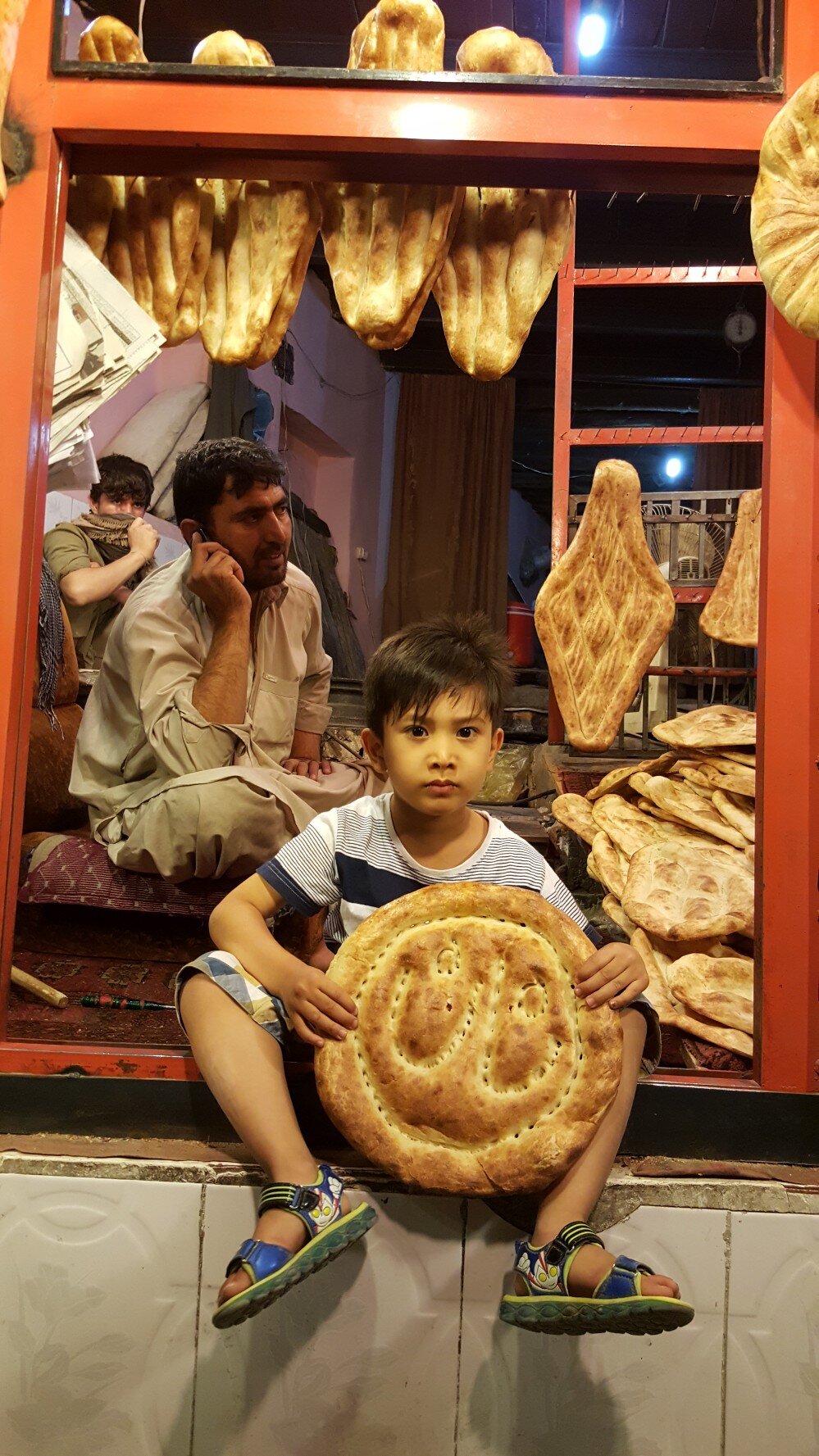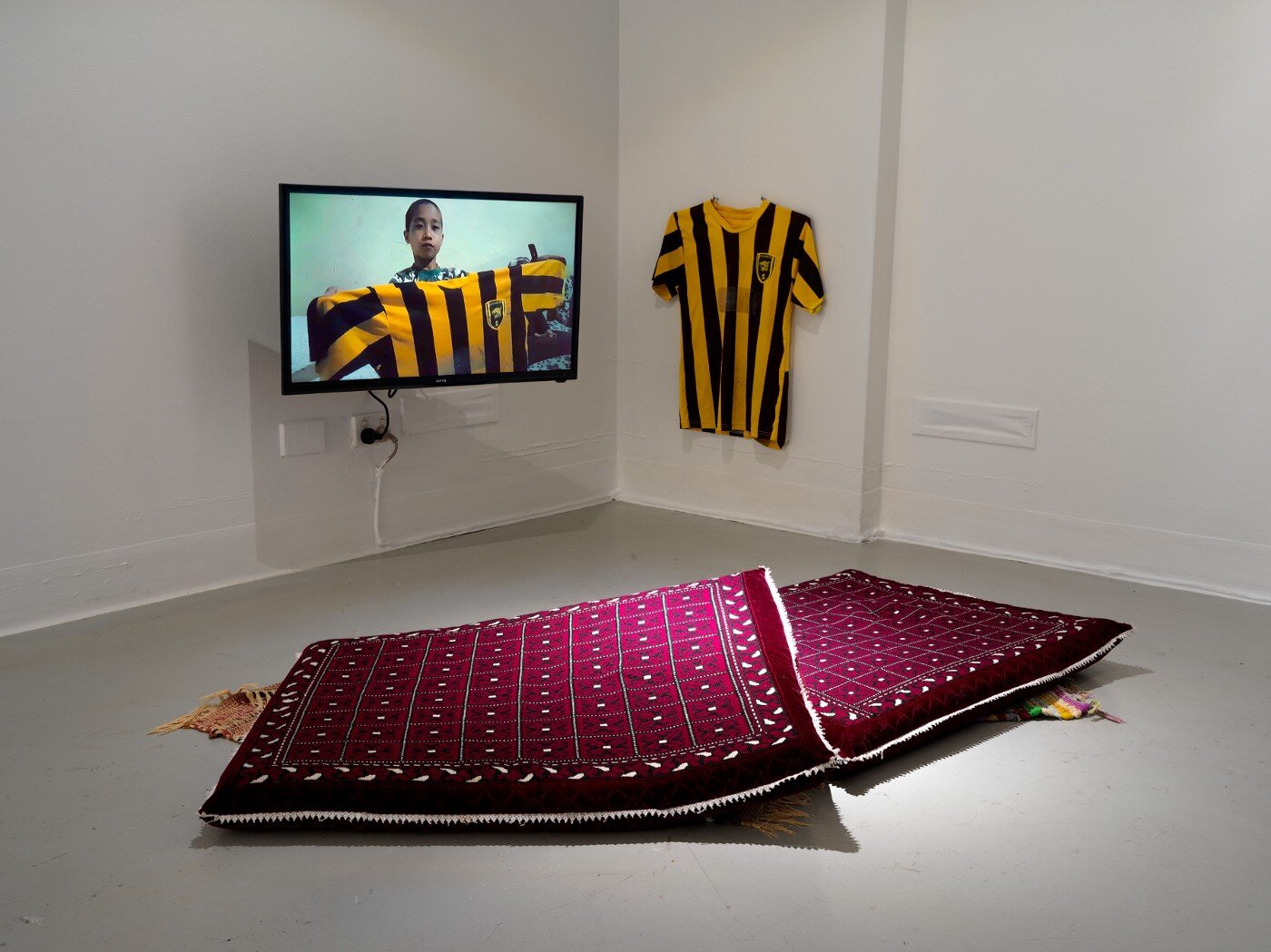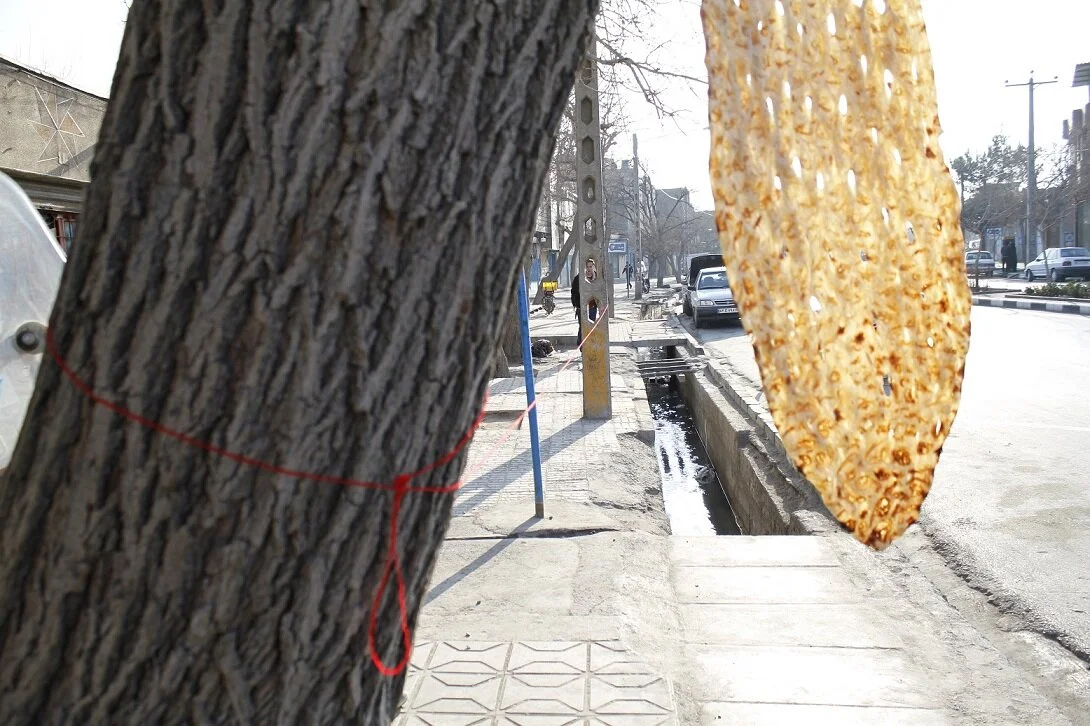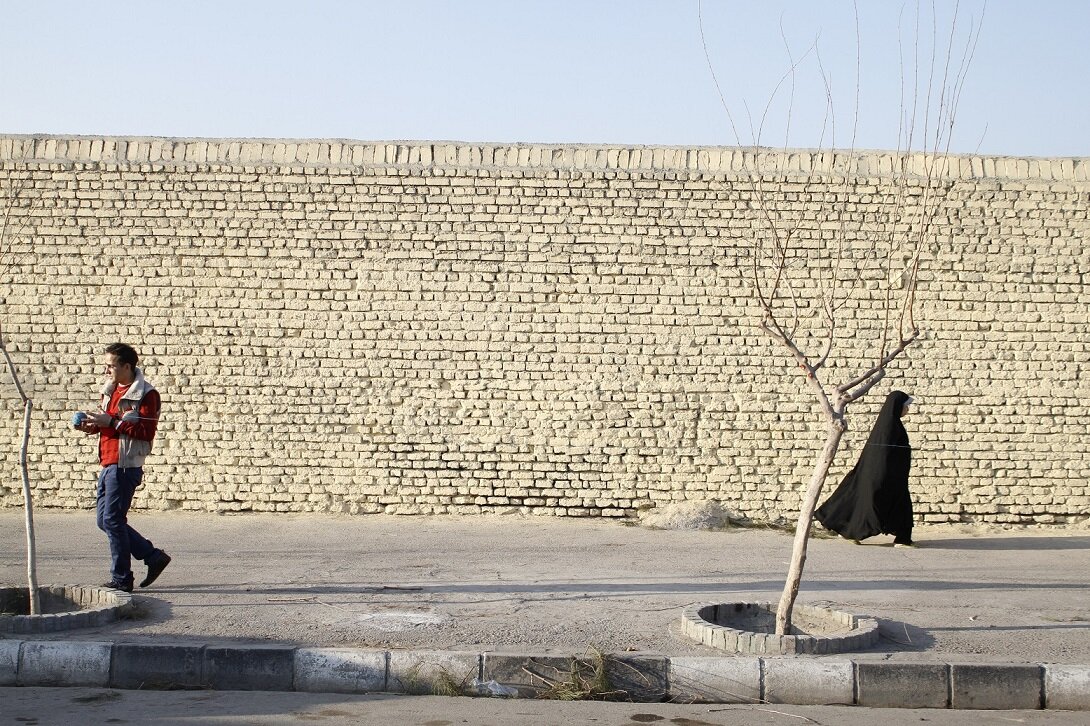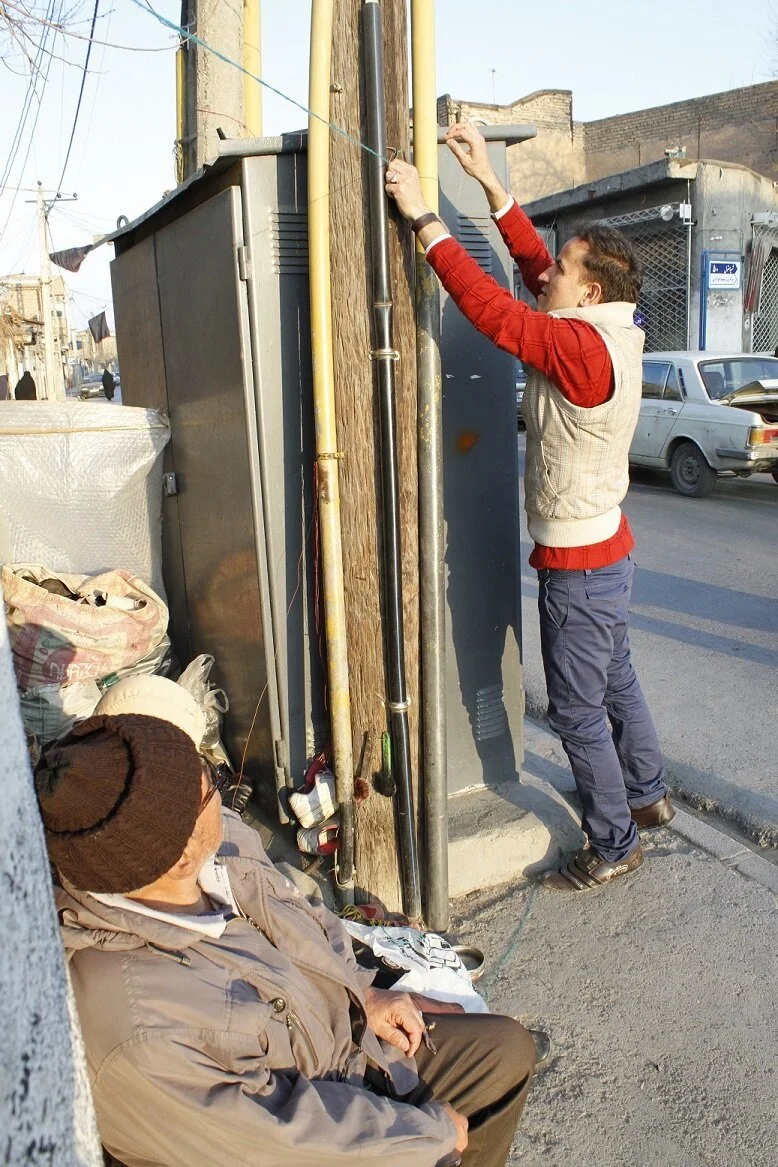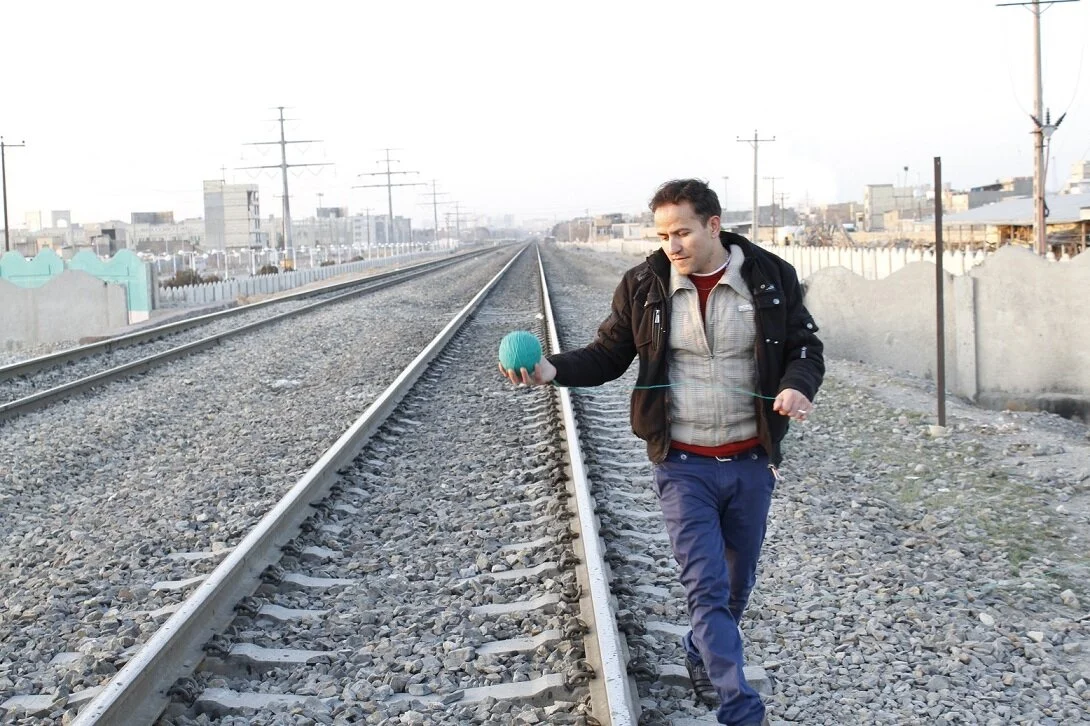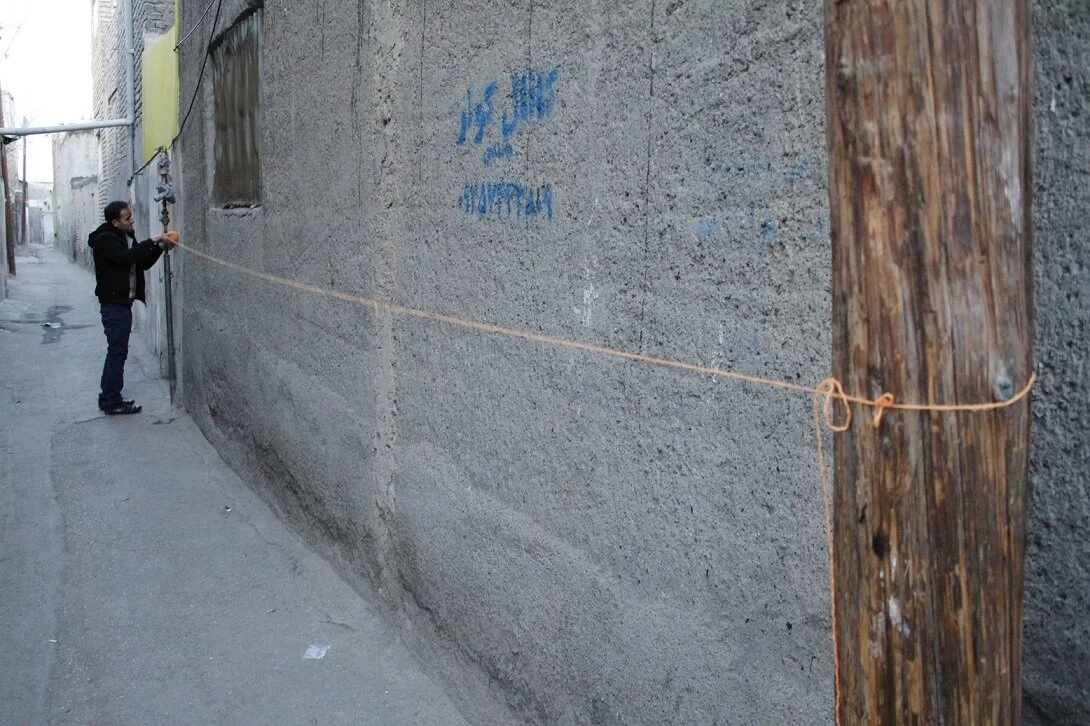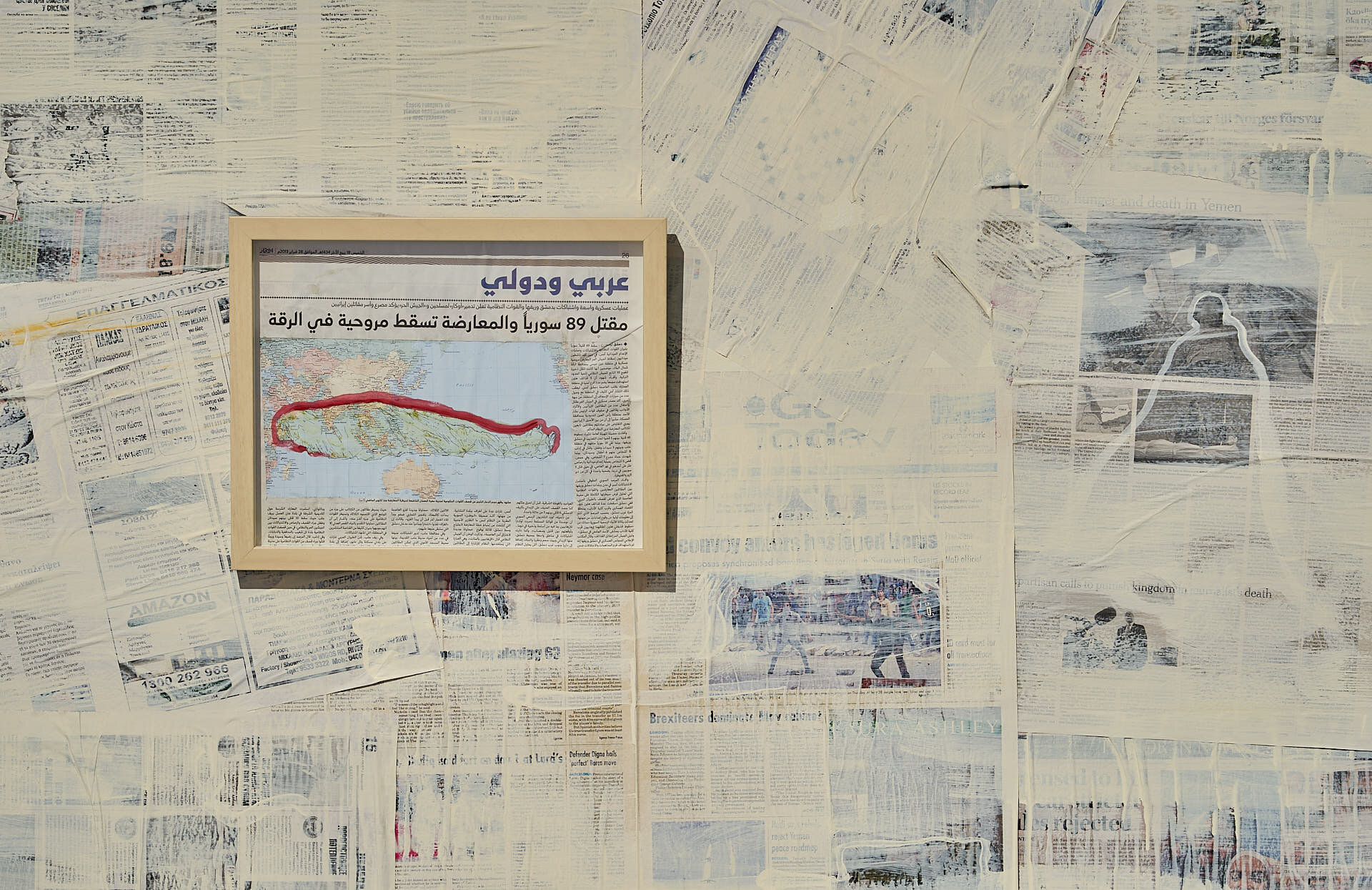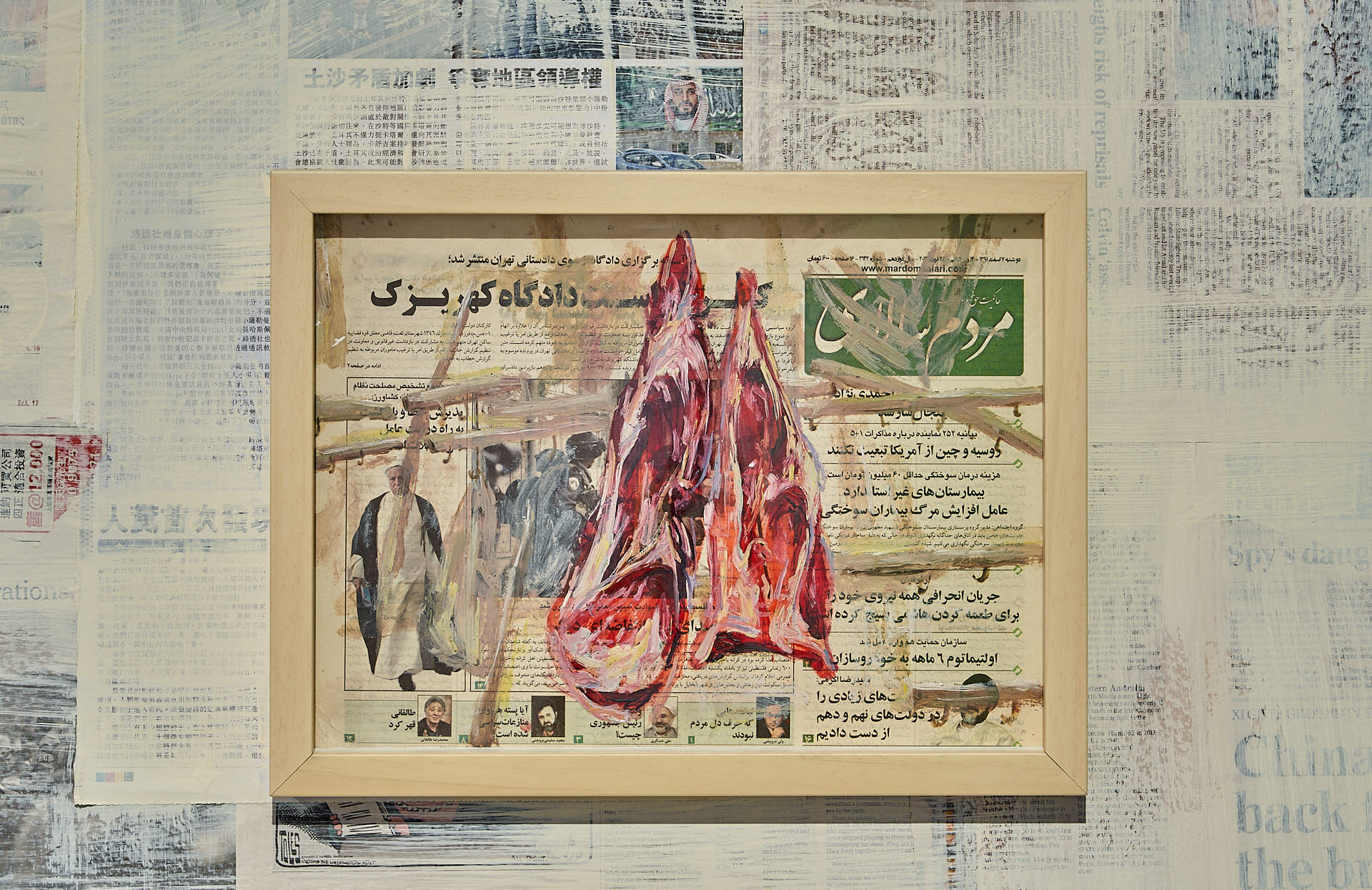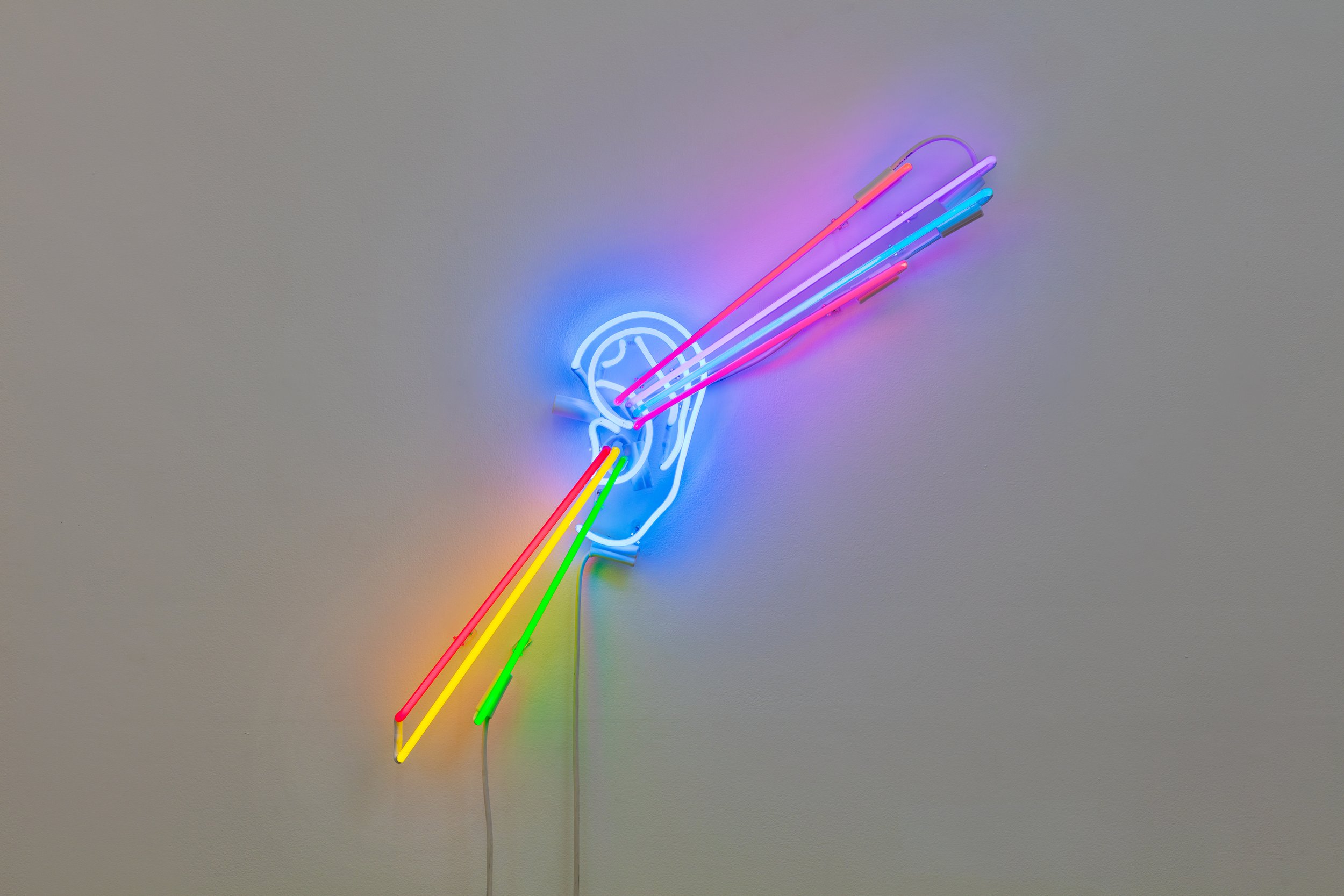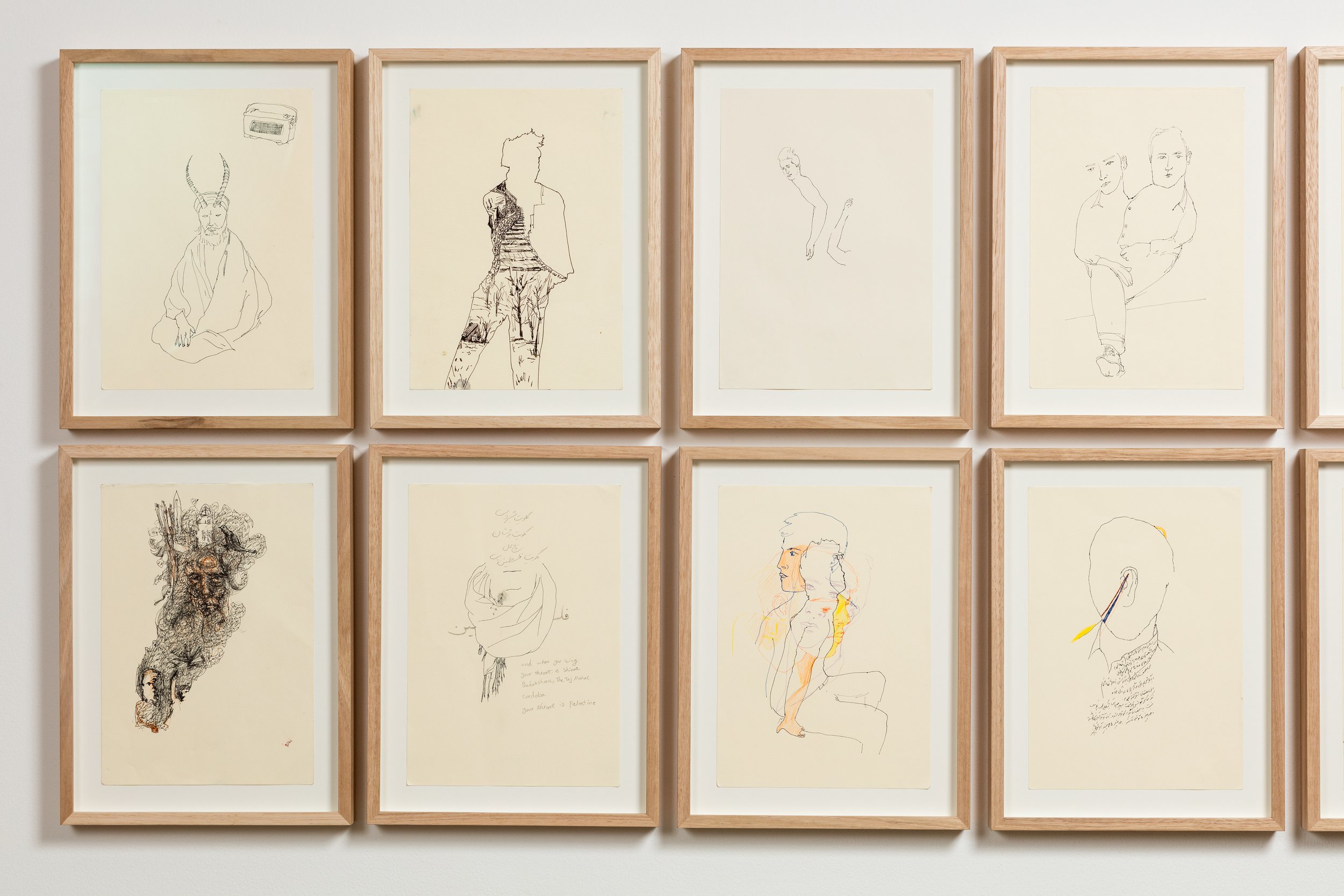Daydreamer Wolf is a solo exhibition by Elyas Alavi, developed for the 2018 Next Wave x ACE Open x Firstdraft co-commission, the project documents Alavi’s experience as a Hazara refugee and migrant to Australia.
Working across painting, sculpture, documentary video and poetry, Alavi’s practice engages with ideas of family, memory, national identity and displacement. Daydreamer Wolf is his largest body of work to date, and offers a timely and highly personal perspective on the trials and realities of the contemporary refugee experience.
—
Daydreamer Wolf is an investigation into issues of identity, memory, migration and displacement through the production and exhibition of new work involving painting, video projection, installation and performance collaborations across visual-art, music, poetry and performance.
The project is a suite of visual art and verbal-musical performance works based on poems I have written since I immigrated to Australia, and are inspired by my experiences as a Hazara refugee. In my book of poems “I’m a Daydreamer Wolf” (2008), I lament on the absurdity of conflict, displacement, and their affective echoes, metaphorically creating a poetic identity, a displaced alter-ego, where I am the daydreamer, dreaming of hope, and the wolf, subject to his own difficult experience and identity.
The history of the Hazara people, to which I belong, is deeply troubled, involving ongoing ethnic genocide, persecution, mass migration and exile for over two centuries. An involved witness, in my own journeys, I have shared stories with exiled friends and siblings, listened to artist and writer friends forced to leave their homes and perilously journey to safety, sharing in their loss, always.
During and after my own journey from Afghanistan to Australia, I have gathered artefacts that belonged to victims of conflict from Afghanistan, clothes from asylum seekers fleeing to Europe (including my own family members) and from former detainees who spent months in mandatory offshore detention centres operated by the Australian Border Force. I have used these artefacts to create artworks, presenting direct material echoes from human being afflicted by conflict.
In Daydreamer Wolf, alongside new static and projected video works, installations featuring artworks created from such artefacts and inspired by the people they belonged to will invite the audience to experience what it can be like to be displaced, to live as a “refugee”. Having documented through still imagery and handheld video many of own journeys of return to my country of origin and places of exile, I have also acted as a voice for others who have experienced similar difficulties, of loss, displacement and separation from kin. The 113 figurative portraits on clear glass are intended to further metaphorically reflect the very human tragedy of displacement. These ghostly portraits will cast shadows on the wall, a second portrait, like an echo. They are there, and they are not. The number 113 is highly symbolic for the Shiite sect of Islam members, which my family belongs to. The widely held belief that one day a chosen 113 people will die and return to this earth to bring eternal peace, after which there will be no more war, no more injustice, infuses me with both a sense of beauty and tragedy, an irony where the hope of a better world contrasts with the seemingly naïve aspiration of accepting fate and giving one’s life over to destiny in the hope that maybe one of those 113 people will be me and I will be saved.
As an artist from the Middle-East, I naturally express part of my creativity through poetry, a pillar of Persian culture and identity. While my creative practice is multi-faceted, drawing both from literature (Persian poetry) and visual art (painting), it has expanded in recent years to include photography, video, installation, documentation and experimental performance which a focus on personal experiences as a Hazara refugee, migrant to Australia and member of the LGBTIQ community.
While I primarily see myself as a visual artist, infusing poetry into visual arts, performance and collaboration through the lens of identity, memory, violence, trauma and displacement provides me with the of revisiting my literary practice under a different light, a new creative language, as I seek to explore and ignite the same emotional and conceptual depth that poetry can possess through visual modes of communication such as painting, installation, video and performance. This project will be the first major opportunity to re-contextualise poetry within my visual art practice both personally and collaboratively, embedding it within a visual art framework through experimental work and continuing material and representative investigations.
The performance component of the project involved a series of collaborative spoken-word, musical improvisations. In these, I invite experimental musicians from culturally diverse backgrounds (two local musicians in each city) to respond to my poetry as I recite and perform it, interacting with elements in the gallery. Surrounded by artefacts and artworks, the musicians will respond to my own physical interaction with the exhibition content. Combining pre-arranged segments, improvisation and some audience interaction, these new performances will present each audience with an entirely unique experience.
Read an accompanying essay by Andy Butler









